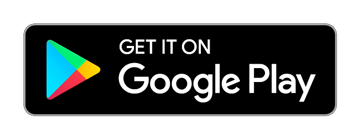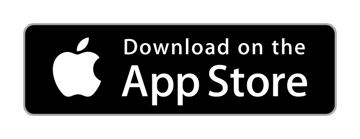Developing Your Intuition is the process of perceiving or knowing things to a high degree of certainty without conscious reasoning. Researchers with the HeartMath Institute and many others who have conducted numerous controlled and scientifically validated studies over more than half a century have expanded the definition of intuition to include not only conscious perception by the mind alone, but also by the body’s entire psychophysiological system. This perception often is evidenced by a range of emotions and measurable physiological changes exhibited or detected throughout the body, according to the study Electrophysiological Evidence of Intuition: McCraty, Atkinson and Bradley, 2004.
The only real valuable thing is intuition.Albert Einstein, 1879-1955
Taking into account the array of intuition research, along with findings from years of experimentation at its research facilities in Boulder Creek, Calif., and elsewhere in the U.S. and abroad, HeartMath theorizes that intuitive abilities we’re unable to attribute to subconsciously stored memories and experiences or to the conscious brain’s analytic processes, make sense in another context: The body is connected by sensory perception to a field of energy that enfolds the information we attribute to intuition.
What the Heart Knows
What we know today about what the heart knows is truly exciting and the implications are great. Relying on a variety of data from numerous studies and experiments, particularly heart-rhythm-pattern measurements, IHM’s findings point to the human heart as playing a key role in the intuitive process, and a recent study concludes the heart actually receives intuitive information faster than the brain – by a second or slightly more. This would seem to attribute some independent intelligence to the heart: In fact, the concept of a “heart brain” is widely accepted today.
It has been established that the heart has a powerful electromagnetic field and its own complex nervous system and circuitry that generates up to an estimated 60 times the electrical amplitude of the brain. The electromagnetic signal our heart rhythms produce actually can be measured in the brain waves of people around us. It is no wonder that the findings by researchers at the HeartMath Institute and elsewhere conclude the heart has its own organized intelligence network enabling it to act independently, learn, remember and produce feelings – all attributes which, until recently, were nearly universally held to be solely in the brain’s dominion.
… but it is wisdom to believe the heart.From a poem by George Santayana, 1863-1952.
You and Your Intuition
Perhaps the knowledge that the heart possesses this intuitive intelligence doesn’t mean much to you because your experience has been that although some people seem capable of tapping into their intuition, you haven’t been able to do it. As far as you know, you’ve never experienced intuition, or it is such a rarity that you readily dismiss all such instances as mere coincidence or sheer luck. What would it mean if you could fine-tune this intuitive ability? Is it even possible? The HeartMath Institute’s extensive scientific studies indicate you can develop and enhance your intuition. In tandem with its years of research, HeartMath also has engaged in comprehensive development and testing of tools and programs to help you develop your heart’s intuitive intelligence and use it advantageously.
Heart intuition or intelligence brings the freedom and power to accomplish what the mind, even with all the disciplines or affirmations in the world, cannot do if it’s out of sync with the heart.The HeartMath Solution, 1999, Childre and Martin
The Rhythm of the Heart
After years of research, the very core of HeartMath’s findings regarding the ability of human beings to improve their lives emotionally, physically and mentally is the revelation of what is known as “heart-rhythm coherence.” In simple terms, here is what heart-rhythm coherence and incoherence mean, followed by a description of what happens when the heart is in or out of coherence:
A coherent heart is one that has smooth, ordered heart-rhythm patterns such as might be seen in an electrocardiogram.
An incherent heart is marked by jagged, disordered or irregular heart-rhythm patterns.
As testing has shown, events, sights, sounds and other stimuli in the environment around you contribute to your heart-rhythm patterns, and regardless of the favorability or unfavorability of these patterns, the heart transmits them to the brain for processing. This process includes storing and remembering these patterns for future use. When heart-rhythm patterns are coherent, the heart’s ability to perceive intuitive information is heightened. Stress chemical pathways reverse, paving the way for increased synchronization between the heart and brain. It is in this synchronized state, which athletes call being “in the zone,” that you can achieve optimal mental clarity, cognitive performance and perception of intuitive information.
When you have a coherent heart, you are at your best. If you are accustomed to being appreciative, caring, compassionate, all of which lead to a coherent heart.
Your heart processes your caring attitude and responses into coherent rhythm patterns and these are sent to the brain, which in turn triggers remembered responses appropriate to or learned from previous similar situations.
When heart-rhythm patterns are incoherent – disordered and irregular – your heart sends these unfavorable patterns to the brain, which then searches its stored heart-rhythm patterns in search of a match and simply triggers a remembered emotional response – what you might call learned behavior. When things irritate or anger you and more often than not you respond by shouting or slamming a door the brain is likely to recommend the same emotional response the very next time something angers you. Anger leads to incoherence, which leads to a negative response, which leads to continued incoherence.
The Coherent Heart (Heart-Brain Interactions, Psychophysiological Coherence, and the Emergence of System-Wide Order). McCraty, Atkinson, Tomasino, and Bradley
A HeartMath TIP:
Try the Quick Coherence® technique to shift your emotional state and send positive emotions through your system.
- Heart focus: Shift your attention to the area of your heart and breathe slowly and deeply.
- Heart breathing: Keep your focus in the heart by gently breathing – 5 seconds in and 5 seconds out – through the area of your heart – and do this two or three times.
- Heart feeling: Activate and sustain a genuine feeling of appreciation or care for someone or something in your life. Focus on the good heart feeling as you continue breathing through the area of your heart.
Benefits of Developing Your Intuition
- Make better, heart-based decisions more often
- Improve physical, mental, emotional health
- Increase effectiveness at home, work, school
- Reduce stress
- Maximize your creativity
Tools For Developing Your Intuition
Inner Balance™The Inner Balance Transformation Sytem is an innovative technology to improve health and well being. It includes self monitoring and integrated training. You simply run a session focusing on a positive moment and track your results over time. Research has shown that focusing on positive emotions like appreciation can greatly reduce the effects of stress and deliver you to a more calm peaceful state.
» Learn More
emWave®: Regular use of this scientifically validated, stress-relief technology has proven to be a vital tool in reducing anxiety, stress, anger, emotional chaos and boosting energy and vitality. The emWave technology is easy to use and noninvasive. It will help you achieve heart coherence – synchronization between the heart and brain – and reach your optimal physical, mental and emotional balance. When your emotions are in balance, you stop the energy drain and start the energy gain. Then, by practicing the easy-to-learn techniques you’ll receive with your emWave only minutes a day will help you revitalize and re-energize your mind, body and spirit anytime, anywhere.
» Learn More
Heart Lock-In Technique®: Using what HeartMath considers to be one of its foundational techniques for achieving synchronization between the heart and brain, you’ll to learn achieve and maintain a coherence level that will allow you to distinguish between the voice in your head and the one in your heart, where positive feelings of love, caring, appreciation, etc., will quickly transform you in ways you may never have dreamed possible. Learn the steps of the Heart Lock-In technique in the powerful book The HeartMath Solution, Childre, Martin, 1999.
» Learn More
Before Cognition: The Active Contribution of the Heart/ANS to Intuitive Decision Making as Measured on Repeat Entrepreneurs in the Cambridge Technopol: This report, presented at the Fourth AGSE International Entrepreneurship Research Exchange in Brisbane, Australia in February, 2007, provides the preliminary results of a study on the psychophysiological basis of entrepreneurial intuition possessed by that unique sector of persons in the business world “who have extraordinarily accurate hunches about the locus of new future business opportunities.” Repeat, or so-called serial entrepreneurs, were selected for the study “because they have beaten the odds against success.”
» Learn More

